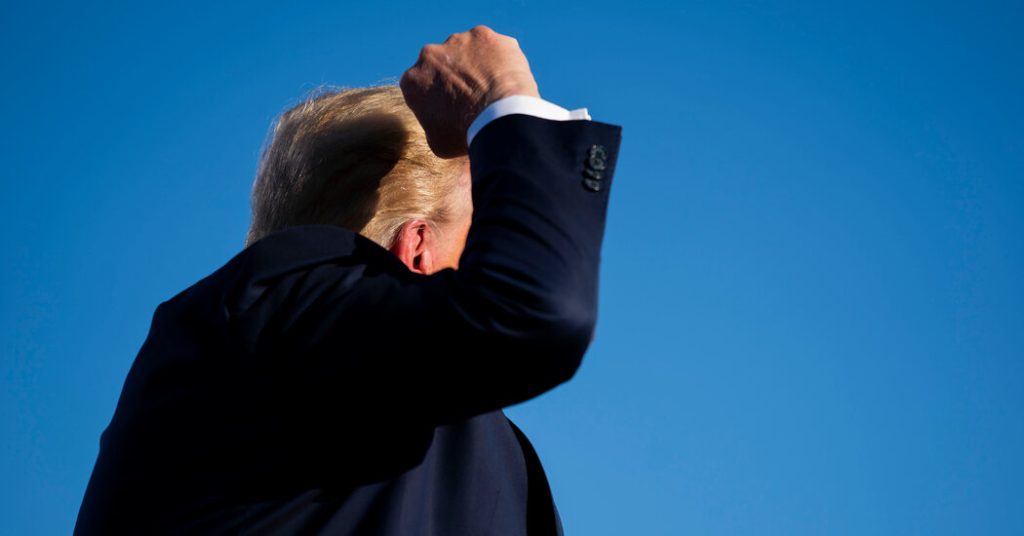Donald Trump’s recent actions and statements have continued to shock the public, with his trial over hush money paid to a porn star being farcical and even resulting in a threat of jail time for contempt of court. His derogatory comments about political enemies and immigrants have become almost cliché at this point. However, when he posted a video on his Truth Social account featuring mock headlines about his potential re-election in 2024, including one that mentioned the “creation of a unified reich,” it raised concerns about America potentially heading towards a second Trump presidency that mirrored Nazi Germany.
Trump’s history of flirting with authoritarianism and fascism is well documented, from praising neo-Nazi marchers in Charlottesville to instigating the Jan. 6 riot. The video mentioning a “unified reich” is seen as a different kind of danger that another Trump presidency could bring. A troubling aspect highlighted by the video is the presence of young Republican staff members with seemingly white nationalist ideologies, which could influence the next Republican administration beyond Trump’s own influence.
The Republican Party has been grappling with the presence of extremist elements within its political coalition, with many young staffers showing support for figures like Nick Fuentes. The party appears to be embracing aspects of fascistic ideologies, resulting in concerns about the direction it is heading. The broad support for Trump, despite his extreme positions, illustrates the prevalence of these far-right elements within the party.
The history of right-wing popular fronts in American politics stretches back to the 20th century, with various conservative figures unifying against leftist and liberal ideologies. While not every conservative aligned with extremist views, the presence of such elements was notable even in influential conservative publications like The American Mercury. The conservative movement has grappled with internal tensions over aligning with far-right ideologies, with past figures like George Lincoln Rockwell facing backlash for embracing Nazi symbolism.
Despite the political costs of overtly supporting fascist ideologies in the past, the contemporary political landscape appears to be more tolerant of extremist views. Trump’s campaign has not suffered significant consequences for aligning with far-right figures, and his continued popularity indicates a level of acceptance of these elements within conservative circles. The potential influence of far-right activists in a second Trump administration raises concerns about the direction the Republican Party could take under such leadership.
If Trump were to be re-elected, his promises to root out various political ideologies and replace civil servants with conservative loyalists could potentially give far-right activists a significant role in governing. Given the prevalence of ties to white nationalists and neo-Nazis among Republican staff members and the Texas GOP’s decision against barring such associations, the prospect of these individuals gaining real power in a second Trump administration is worrisome. The fantasy of a unified reich in America may not be a reality yet, but the possibility of such ideologies wielding authority is a cause for serious concern.


